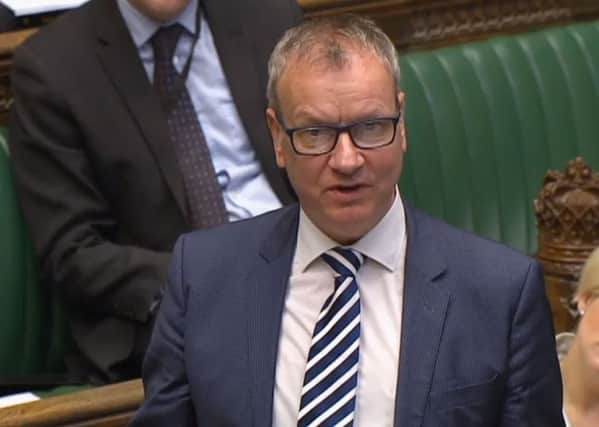UK-Scottish government relations at breaking point – Pete Wishart


Key events have epitomised the deteriorating relationship. In June 2018, we saw the passing of landmark constitutional legislation without the consent of the Scottish Parliament – something that Westminster has consistently promised never to do. This year marks the 20th anniversary of the Scottish Parliament, and its legislative authority must not be weakened in this difficult time in British politics.
We have also witnessed stalemate, after the Scottish Government refused to grant consent to any of the UK Government’s Brexit legislation. More recently, we’ve seen the two governments fight it out in the highest court of the UK, after the UK Government challenged the legality of the Scottish Parliament’s Brexit laws. Looking forward, if Brexit goes ahead, this issue will become even more important as the UK’s four governments will have to agree new rules to replace those currently set at EU level.
Advertisement
Hide AdAdvertisement
Hide AdIt’s against this background that my Commons’ committee launched its inquiry into the relationship between the UK and Scottish governments. Our inquiry has traced how this relationship has changed over time and has heard from some of the brightest minds in political and constitutional academia, as well as international experts, and former ministers and civil servants.
A recurring theme has been the importance of informal relationships in making inter-government relations work, with some suggesting that the UK is over-reliant on these at the expense of formal mechanisms. This may be a legacy from the early days of devolution when Labour was in power in both Edinburgh and Westminster, meaning the two governments disagreed about relatively little and there was little incentive to create formal machinery for joint engagement, and robust dispute resolution processes. Instead, the relationship was based on goodwill and political symmetry.
Fast forward 20 years, and we now have two governments with different priorities, different policies and different outlooks, and intergovernmental processes which are not up to the job of managing this difference. With Brexit placing unprecedented strains on the balance of power between the Scottish and UK governments, the fundamentally weak foundations of the relationship are showing themselves at a time when cooperation is needed most.
Yesterday my committee took evidence from Chloe Smith MP, the UK minister responsible for constitutional policy and intergovernmental working. We questioned her on the UK Government’s policy on intergovernmental relations, and how Brexit will impact joint working and cooperation.
During the session, the minister recognised many of the issues which have been raised with the committee by other witnesses, and explained that some of them would be addressed through the Cabinet Office’s review of intergovernmental relations. Although there were areas of disagreement, I was pleased she acknowledged some of the shortcomings in existing processes and the need for reform.
In this uncertain future, devolution cannot rely on goodwill any longer. We need clear processes to manage the new era of political fallout which Brexit has ushered in. As our witnesses told us, the processes designed 20 years ago, and in an entirely different political climate, are no longer fit for purpose today.
The need to agree, implement and manage post-Brexit rules, and then settle disagreements arising from them, requires absolute confidence in the mechanisms for joint cooperation and dispute resolution.
My committee will be publishing a report setting out key recommendations which will set out a modern way of joint working, predicated on respect for the devolution settlement, and joint decision-making. Anything less than this will fail to endure the challenges Brexit poses, and will threaten the foundations of devolution in the UK.
Pete Wishart is an SNP MP and chair of the Scottish Affairs Committee
